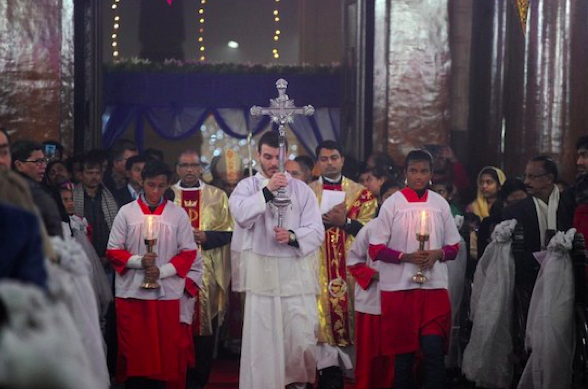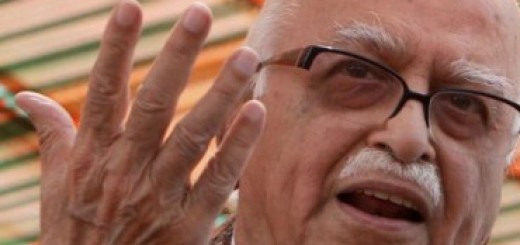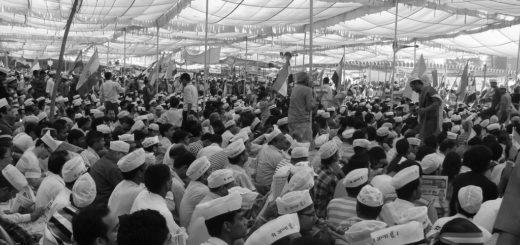New report exposes India’s mistreatment of minorities

Religious/ethnic mistreatment, India – Ritu Sharma, in Matters India, India. February 13, 2017
It elaborates on how laws discriminate against Christians and Muslims.
(In the pic: Indian Catholics celebrate Christmas Mass at St. Joseph’s Cathedral in Allahabad late on Dec. 24, 2016. Last year at least 10 Christians were killed for their faith in India. (Photo by Sanjay Kanojia/AFP)
 (Note: When we hear of any US agency pontificating on principles one feels like saying: “Doctor heal yourself first.” Such deeprootd are divisions and discrimination today in US. That is no justification for India to gloat over. Both are like pot calling the kettle black.
(Note: When we hear of any US agency pontificating on principles one feels like saying: “Doctor heal yourself first.” Such deeprootd are divisions and discrimination today in US. That is no justification for India to gloat over. Both are like pot calling the kettle black.
As long as two people are alive there will be divisions and fights. But there are certain tolerable levels or “Lakshmana Rekha” which no civilized nation should cross.
From time immemorial religious wars were going on, that is wars in the name of God, the most absurd thing one can think of, as if there are different warring Gods. Worse still is caste discrimination, based on the color of the skin, or work one do. This is peculiar only to India. Today they speak even of voting their caste than casting their vote
At the bottom of the caste ladder are the untouchables. These are the most exploited in society and so they deserve positive support from all sections of society. james kottoor, editor)
India fails to comply with international standards on freedom of religion leading to the discrimination and persecution of religious minorities, said a new report by the United States Commission on International Religious Freedom.
The report, "Constitutional and Legal Challenges Faced by Religious Minorities in India" said that, although the country's Constitution guarantees equal rights to religious minorities, the government fails to comply with international standards.
It also enumerates India's failure to ensure the rights of Dalit people, those from socially and economically poor castes, once considered untouchables.
"Religious minority communities and Dalits, both have faced discrimination and persecution due to a combination of overly broad or ill-defined laws, an inefficient criminal justice system, and a lack of jurisprudential consistency," the report said.
Hindus form the majority 80 percent of India's 1.2 billion people while Muslims form some 15 percent. Christians, the second largest religious minority, form just 2.3 percent. Dalits and tribal people make up 70 percent of India's 27 million Christians.
In 2016, at least 10 Christians were killed and over 500 members of the community were attacked for their faith or for allegedly converting people to Christianity, said a report by the Catholic Secular Forum in January 2017.
"Symbolic and structural violence has increased in the country since 2014. The government needs to respond to such violence in a much more sensible way rather than denying it," said Samuel Jaikumar of the National Council of Churches in India, a union of all Protestant and Orthodox Churches.
Laws help, but discrimination continue.The U.S. report said that seven of the 29 states have adopted laws banning religious conversions, which has resulted in inequitable practices.
The report said that state governments have described church humanitarian aid and development "as a cause of improper and unethical conversions. "The report also said that India's law to regulate foreign funding has consistently been used against civil society organizations, charities and other non-governmental organizations that question government policies.
In June 2015, India put the leading Christian charity, Caritas International, on its watch list. The charity, which is the social arm of the Vatican, was scrutinized for alleged "anti-India activities," the report said.
Referring to the Indian Divorce Act 2001 that restricts inheritance, alimony payments, and property ownership of people from interfaith marriages, the report said the law is "problematic."
"The act also interferes in the personal lives of Christians by not allowing marriage ceremonies to be conducted in a church if one of the partners is non-Christian," it added.
The cow protection laws in India which restrict or ban cow slaughter are "often mixed with anti-Muslim sentiment," the report said. Cow slaughter "has remained a perpetual source of tension between Hindu, Muslim and Dalit communities."
In recommendation, it said that India should stop harassing groups, reform anti-conversion laws, and establish "a test of reasonableness" surrounding prohibitions on cow slaughter. It also asked India to adopt the International Convention on the Elimination of All Forms of Racial Discrimination.
















